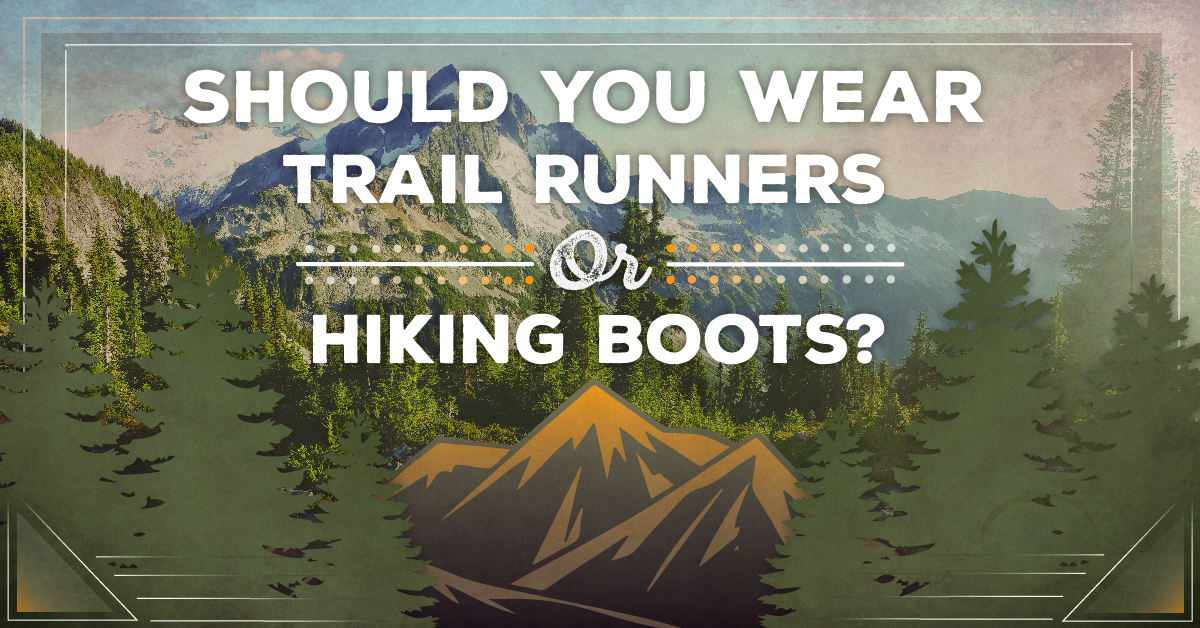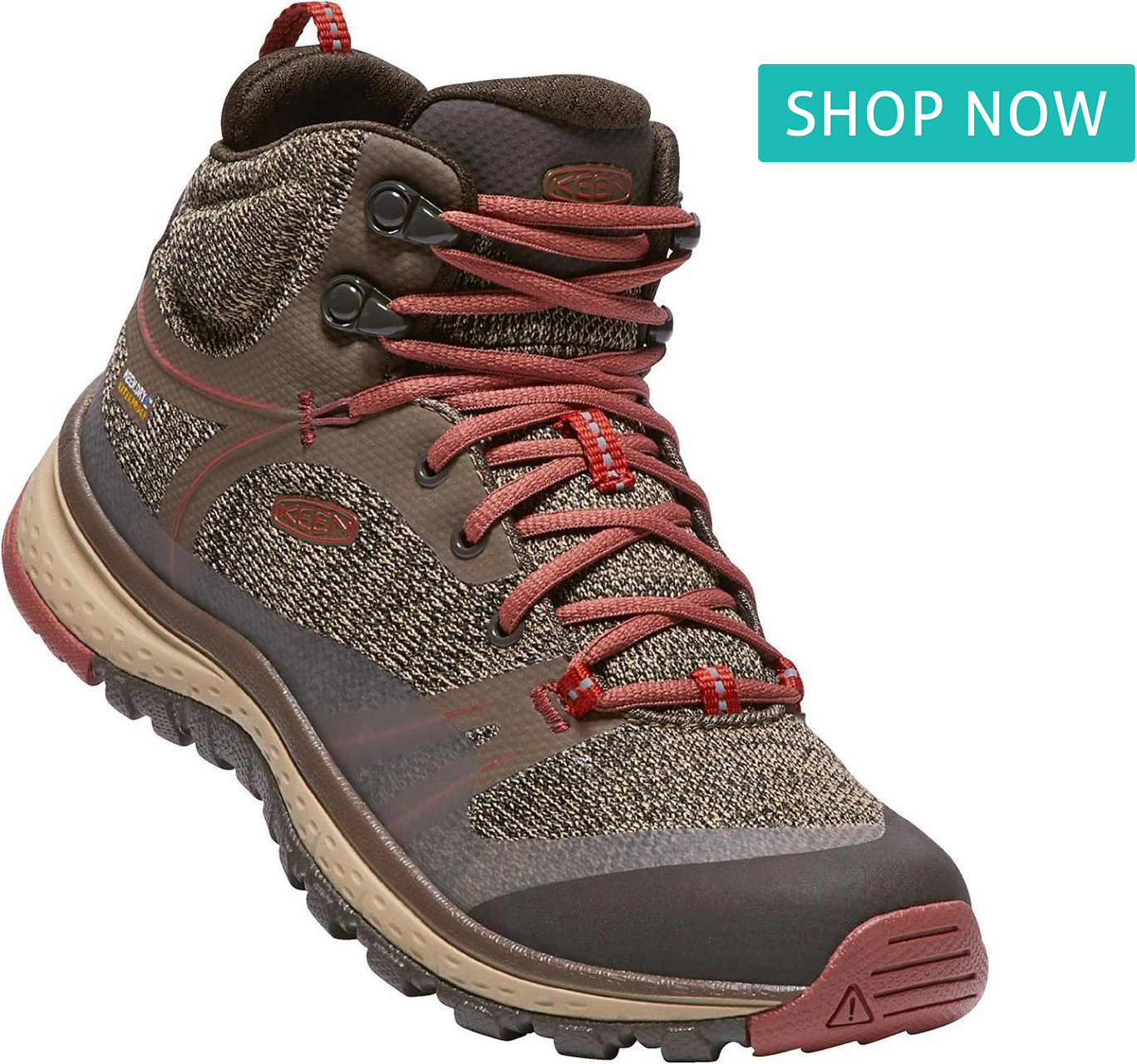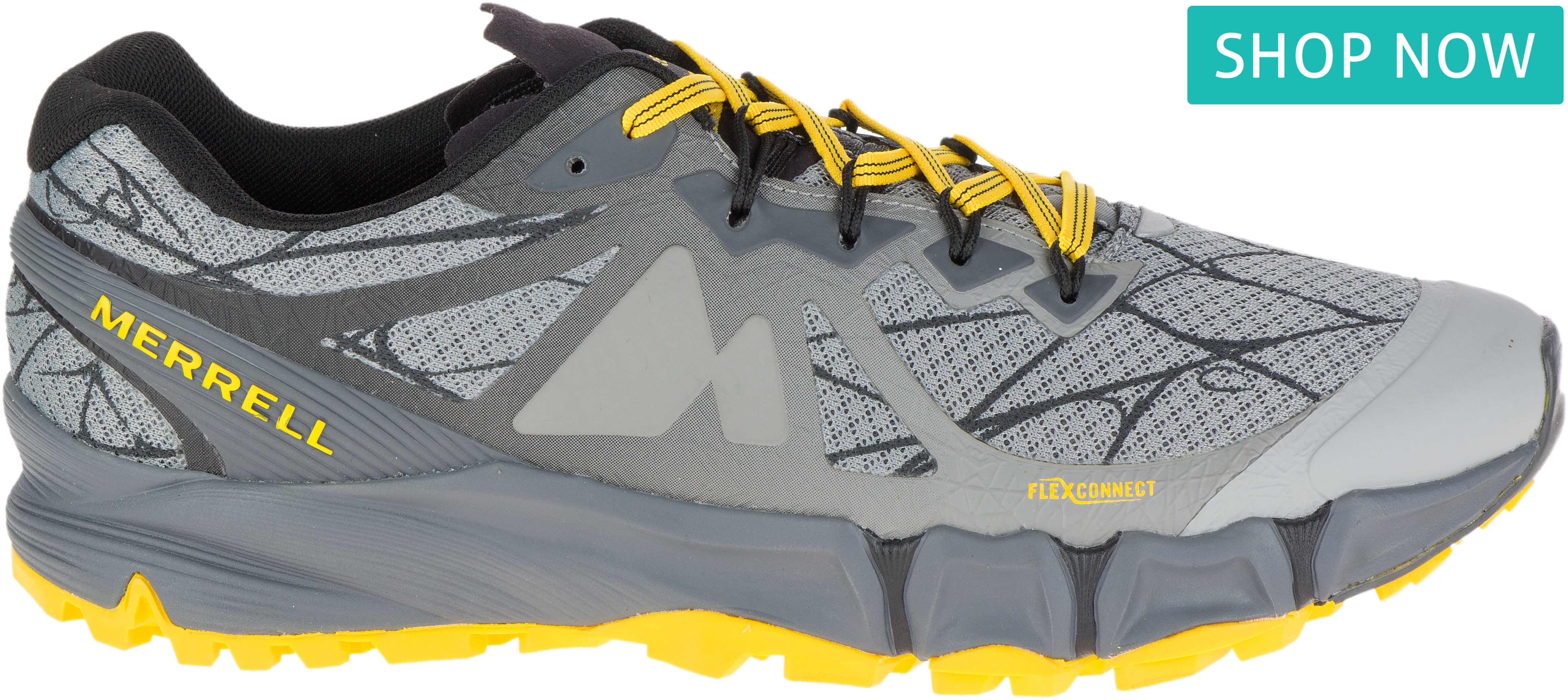
We’ve got cabin fever here at the Englin’s Fine Footwear internet office, and it has us dreaming of warmer days spent exploring the great outdoors. Our outdoor daydream also has us thinking about a question we’ve seen pop up a few times: are hiking boots or trail runners better? Which should I wear? There are whole forums devoted to the subject, some advocating anyone and everyone wear trail running shoes whether they’re planning to run or not and others advocating the death of the trail running shoe entirely. As is usually the case, neither of these extremes is particularly helpful, and the answer as to which is "better" is going to vary from person to person based on their needs. To help you figure out whether you should invest in a pair of trail runners or a pair of hiking boots for your next outdoor adventure, we’re going to run down some of the most important features of both.
Hiking Boots
Keen Women's Terradora Mid Waterproof in Canteen/Marsala, available for $139.95*.
Let us preface this by saying that there are many, many types of hiking boots that have specialized features for different types of hiking from day hiking boots to extreme backpacking boots. Today we’re talking about day hiking boots because they’re the most basic of the bunch and a good place to start if you’re new to hiking boots. Day hiking boots are meant for hikers who want to stick to the trails and aren’t making multi-day journeys.
Day hiking boots most often feature mid- to high-cut shafts meant to help lend a little extra support to your ankles and keep trail debris out. They’re often made of a combination of materials, most frequently leather and mesh for durability and breathability. To keep your feet dry in wet conditions, some day hikers are waterproof, usually meaning they include a waterproof membrane like GORE-TEX®. Boots meant to be used in cold conditions will have some amount of insulation, and boots for cold weather will almost always be pretty clearly marked as being boots for cold weather. Day hikers are usually pretty flexible and easy to break in, a plus if you’re not a frequent hiker or if you tend to hike on maintained trails, but also feature shanks — sturdy inserts placed in between the layers of the sole — meant to add some stiffness to the boot for stability on uneven ground. Some also feature plates, semi-flexible inserts that go under the shank and keep roots, rocks, and other disturbances in the trail from jabbing you in the foot. Hiking boots generally have lug soles, meaning that there are deep indentations in the rubber sole meant to provide added grip on treacherous surfaces.
If you’re planning a more strenuous backpacking trip with heavier loads, you’re probably going to need something more heavy-duty than day hiking boots. The hiking boots you need will probably offer a more beefed up version of the features of day hikers designed to last longer and offer more protection for harder trips. (Of course, if you’re an experienced hiker planning a hardcore, multi-day backpacking trip, you probably already know that.)
TL;DR
Day hiking boot features:
Trail Runners
Merrell Men's Agility Peak Flex in Wild Dove. Also available in Beluga/Olive, Black, Dark Olive, and Merrell Orange. All are available for $129.95*.
Like hiking boots, trail running shoes come in many different styles designed for different types of trails, but whether you’re looking to run on well-maintained trails or off the trails entirely, you’re going to find that all trail runners have many of the same features. The biggest change will usually be in materials used in the construction of the shoes. The more rugged the terrain the shoes are designed for, the more intense the construction materials will be. Rugged- or off-trail running shoes are probably going to the best bet for anyone considering trail runners for hiking purposes.
A trail runner is designed to protect your feet from the uneven terrain of trails. They’re probably going to feature toe guards and plates to keep your feet from getting jabbed by roots or rocks. The uppers are going to be a bit sturdier than on a regular running shoe because they’re meant to help keep twigs, stones, brush, and other bits of nature out of your shoe and off of your feet. Trail runners tend to be structured and supportive; they’re meant to keep you stable even when the ground isn’t. Like hiking boots, some might even feature shanks for added support. Your trail runners are also going to have soles that are made for traction on wet, muddy, rocky, or otherwise not ideal surfaces. Much like running shoes, trail runners have varying levels of cushioning and different heel drops, so identifying the amount of cushioning and heel drop you’re comfortable with is key to purchasing the right pair.
TL;DR
Are Hiking Boots or Trail Running Shoes Better?
Well, as with most things in life there’s not a definitive answer to this question. Actually, it’s not even really the question that’s going to get you a helpful answer. The question you should be asking is “what do I need from my shoes?” Think about what you’re planning to do in the shoes. Are you planning to go run on trails? Are you planning an extremely long hike along, say, the Appalachian Trail? Are you looking to shed some weight so you don’t have to work as hard on hikes? What do you need your shoes to do for you? Once you know how you’re going to be using your shoes, it’s easier for you to find the perfect pair!
The great thing about boots and shoes meant for hiking is that there’s an incredible spectrum of styles and designs available intended for everything from ultra-casual trail strolls to hardcore mountaineering, and that all of them have different combinations of features. You’re even going to find crossover between the two different types of footwear with some heavy-duty off-trail runners having similar features to super-light hiking boots. Rather than deciding that you need a hiking boot or a trail running shoe, you need to decide what you need your footwear to do. Don’t decide on a category based on its name, decide on a pair of shoes based on what you need the shoes for.
We hope this has helped clear up some of the great hiking footwear debate. Whatever you decide, the important thing is that your decision works for you! If you’re struggling to figure out what the right decision for you is, there’s no need to worry. Talk to our footwear experts in-store, online, or by phone to get advice, learn about your footwear options, and find the perfect pair.


